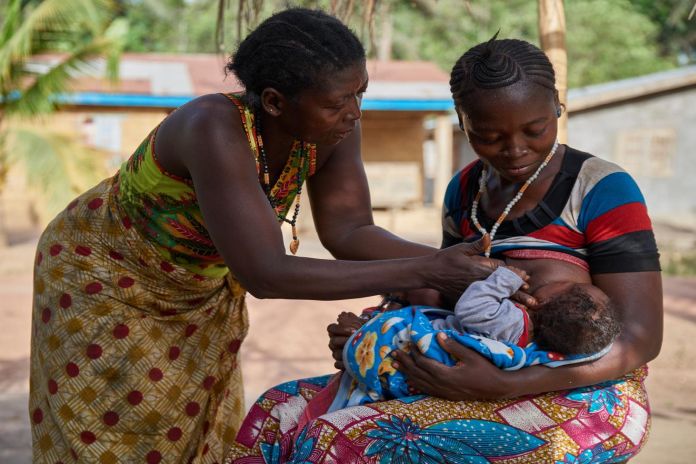-
-
- Joint statement by UNICEF Executive Director Catherine Russell and WHO Director-General Dr Tedros Adhanom Ghebreyesus on the occasion of World Breastfeeding Week
-
NEW YORK / GENEVA – As global crises continue to threaten the health and nutrition of millions of babies and children, the vital importance of breastfeeding as the best possible start in life is more critical than ever.
This World Breastfeeding Week, under its theme Step up for breastfeeding: Educate and Support, UNICEF and WHO are calling on governments to allocate increased resources to protect, promote, and support breastfeeding policies and programmes, especially for the most vulnerable families living in emergency settings.
During emergencies, including those in Afghanistan, Yemen, Ukraine, the Horn of Africa, and the Sahel, breastfeeding guarantees a safe, nutritious and accessible food source for babies and young children. It offers a powerful line of defense against disease and all forms of child malnutrition, including wasting.
Breastfeeding also acts as a baby’s first vaccine, protecting them from common childhood illnesses.
Yet the emotional distress, physical exhaustion, lack of space and privacy, and poor sanitation experienced by mothers in emergency settings mean that many babies are missing out on the benefits of breastfeeding to help them survive.
Fewer than half of all newborn babies are breastfed in the first hour of life, leaving them more vulnerable to disease and death. And only 44 percent of infants are exclusively breastfed in the first six months of life, short of the World Health Assembly target of 50 per cent by 2025.
Protecting, promoting, and supporting breastfeeding is more important than ever, not just for protecting our planet as the ultimate natural, sustainable, first food system, but also for the survival, growth, and development of millions of infants.
That is why UNICEF and WHO are calling on governments, donors, civil society, and the private sector to step up efforts to:
- Prioritize investing in breastfeeding support policies and programmes, especially in fragile and food insecure contexts;
- Equip health and nutrition workers in facilities and communities with the skills they need to provide quality counselling and practical support to mothers to successfully breastfeed;
- Protect caregivers and health-care workers from the unethical marketing influence of the formula industry by fully adopting and implementing the International Code of Marketing of Breast-Milk Substitutes, including in humanitarian settings; and
- Implement family-friendly policies that provide mothers with the time, space, and support they need to breastfeed.





